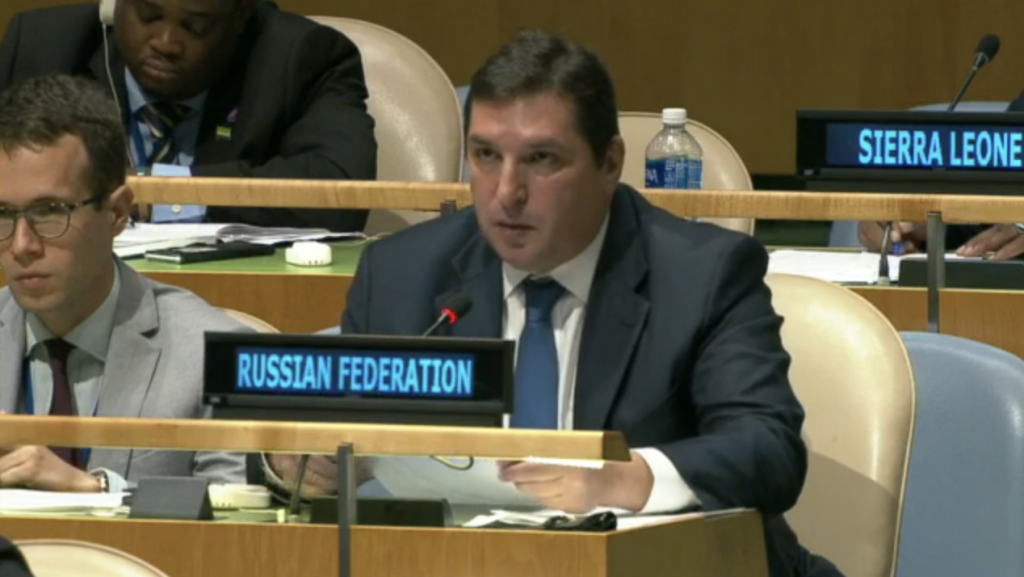Statement by Vladimir Safronkov, Deputy Permanent Representative of the Russian Federation, at the plenary meeting of the UN General Assembly on Agenda item 122 (Question of equitable representation on and increase in the membership of the Security Council and other matters related to the Security Council)
Mr. President, I would like to thank you for convening today’s meeting and for your responsible leadership of the General Assembly at its seventy-first session. We are grateful to you for decision 71/553, on the rollover of the consideration of Security Council reform to the seventy-second session.
This issue is one of the most important on the Organization’s agenda, as the Council is the body that under the Charter of the United Nations has the primary responsibility for the maintenance of international peace and security. At the same time, as discussions during the current session have shown, the positions of Member States on certain aspects remain fundamentally different, indeed opposed.
It is evident that given the major political significance of the issue of Security Council reform, we must continue to seek a solution that would enjoy much broader support from Member States than the formally required two-thirds vote. Ideally it should be a consensus-based decision, and the discussions should in any case be carried out constructively, transparently and openly, without any artificially imposed timelines.
We would like to recall that developing countries in Asia and Africa should be first in line to receive additional seats on the Security Council. We believe that they have the potential to make a significant contribution to the maintenance of international peace and security. Most importantly, this will ensure that future decisions of the Council are balanced.
We firmly believe that all five aspects of Security Council reform should be discussed in their entirety. Any attempt to isolate specific issues risks eroding the package approach that lies at the basis of negotiations and has been agreed to by all. We also want to emphasize that the process should not be moved forward through the imposition of facilitators’ texts, negotiation documents or other initiatives that do not enjoy consensus. Previous sessions of the General Assembly have shown the futility and danger of attempts to arrive at a solution without taking into account the full scope of positions.
In conclusion, I would like to thank our co-Chairs, Ion Jinga of Romania and Mohamed Khaled Khiari of Tunisia, who put significant effort into their role during the seventy-first session.
